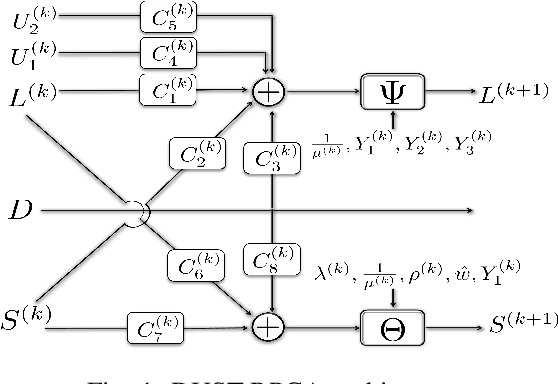A Deep-Unfolded Spatiotemporal RPCA Network For L+S Decomposition
Paper and Code
Nov 06, 2022



Low-rank and sparse decomposition based methods find their use in many applications involving background modeling such as clutter suppression and object tracking. While Robust Principal Component Analysis (RPCA) has achieved great success in performing this task, it can take hundreds of iterations to converge and its performance decreases in the presence of different phenomena such as occlusion, jitter and fast motion. The recently proposed deep unfolded networks, on the other hand, have demonstrated better accuracy and improved convergence over both their iterative equivalents as well as over other neural network architectures. In this work, we propose a novel deep unfolded spatiotemporal RPCA (DUST-RPCA) network, which explicitly takes advantage of the spatial and temporal continuity in the low-rank component. Our experimental results on the moving MNIST dataset indicate that DUST-RPCA gives better accuracy when compared with the existing state of the art deep unfolded RPCA networks.
 Add to Chrome
Add to Chrome Add to Firefox
Add to Firefox Add to Edge
Add to Edge